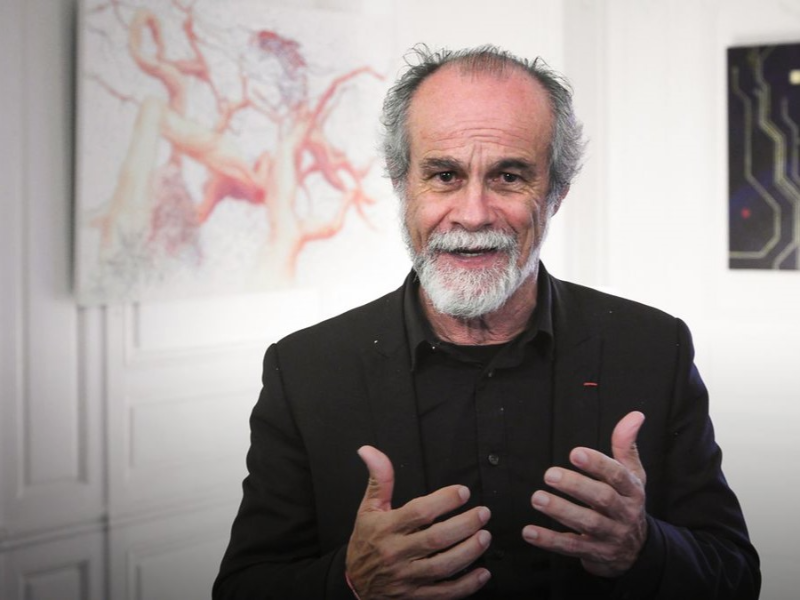- Carlos Moreno proposed the 15-min city in 2016 as a model for a city where citizens can meet their daily needs within a 15-minute distance.
- The 15-Minute City concept was awarded the 2021 Obel Prize for the concept’s contribution to creating sustainable and people-centred urban environments.
In the heart of urban planning and modern technology lies the concept of the “15-Minute City.” This innovative approach aims to revolutionise the way we live, work, and interact within our cities. The idea is simple yet profound: to create a city where every essential service and amenity is accessible within a 15-minute walk or bike ride from home.
The origins
The 15-Minute City concept has its roots in the work of Carlos Moreno, a professor at the Sorbonne in Paris.
Moreno’s vision was to address the issues of urban sprawl, traffic congestion, and social isolation that plague many modern cities. His idea was to create a more compact, connected, and sustainable urban environment.
The concept will break the hegemony of the automobile and reintroduce the qualities of the historic city in contemporary urban planning.
The core principles
- Accessibility: The 15-Minute City is designed to ensure that all residents can access essential services without needing to travel long distances. This includes schools, healthcare facilities, shops, and recreational areas.
- Sustainability: By reducing the need for cars, the concept promotes the use of public transport, cycling, and walking, which are more environmentally friendly modes of transport.
- Community: The aim is to foster a sense of community by bringing people closer to local amenities and services, encouraging interaction and social cohesion.
- Economy: Local businesses and economies benefit from the increased footfall and reduced reliance on cars, leading to a more vibrant and dynamic local economy.
- Health: Active travel, such as walking and cycling, contributes to better physical and mental health for residents.
Also read: LG’s strategic Athom buyout boosts smart home AI
Implementation
Implementing a 15-Minute City involves a multi-faceted approach:
- Urban planning: Redesigning urban spaces to prioritise pedestrians and cyclists over cars.
- Transport infrastructure: Developing efficient public transport networks and safe cycling routes.
- Green spaces: Integrating parks and green areas to improve air quality and provide recreational spaces.
- Mixed-Use development: Encouraging the development of areas where residential, commercial, and public services are in close proximity.
Case studies
Several cities around the world are already embracing the 15-Minute City concept:
- Paris: The city has launched a comprehensive plan to transform itself into a 15-Minute City, with a focus on reducing car usage and increasing green spaces.
- Melbourne: The Australian city has adopted the concept as part of its 20-minute neighbourhood plan, aiming to make local services and amenities accessible within a 20-minute walk or cycle.
- Edinburgh: The Scottish capital is integrating the concept into its city plan, focusing on creating more liveable and connected communities.
Challenges
While the 15-Minute City has many benefits, it also faces challenges:
- Infrastructure costs: The initial investment in infrastructure can be high.
- Resistance to change: Some residents may resist changes to their neighbourhoods or the loss of parking spaces.
- Equity: Ensuring that all residents, regardless of income, have equal access to services and amenities.
Also read: Smart home devices: Luxuries or necessities?
The 15-Minute City concept was awarded the 2021 Obel Prize for the concept’s contribution to creating sustainable and people-centred urban environments.
The 15-Minute City is not just a vision for the future but a practical solution to many of the issues facing urban areas today. As cities continue to grow and evolve, the principles of accessibility, sustainability, and community will become increasingly important.
The 15-Minute City is a bold and innovative approach to urban living. By making essential services and amenities accessible within a short walk or cycle, it has the potential to transform the way we live in cities, making them more liveable, sustainable, and connected. As more cities adopt this concept, we can look forward to a future where urban living is healthier, greener, and more community-focused.

